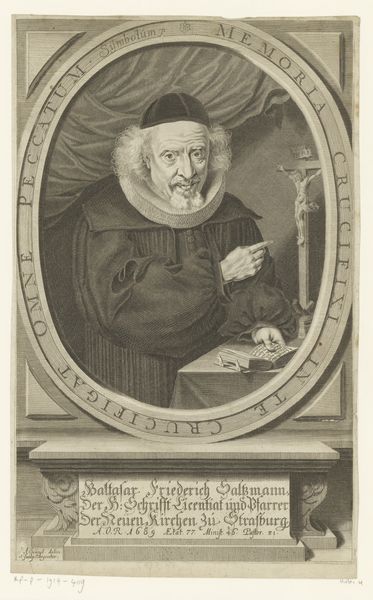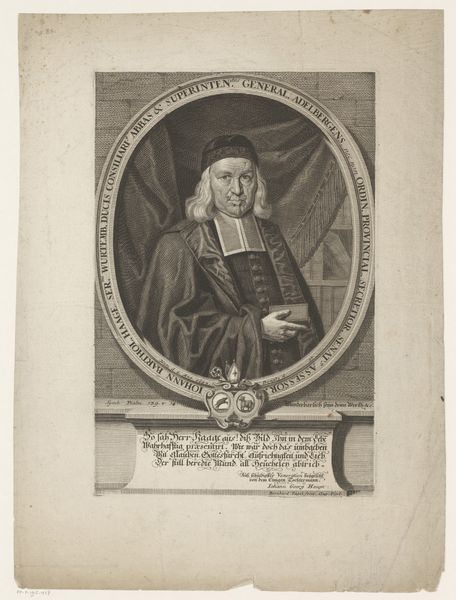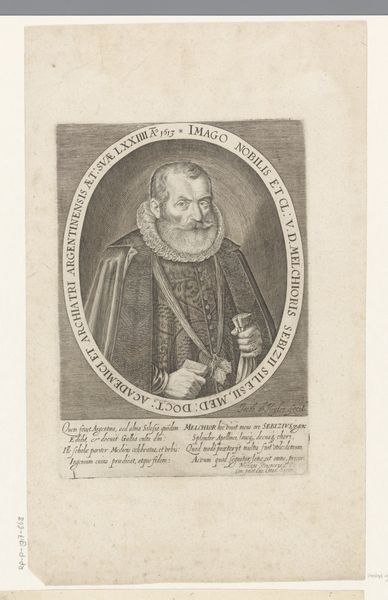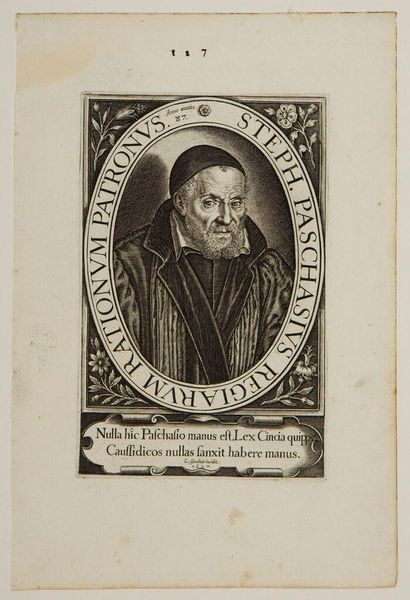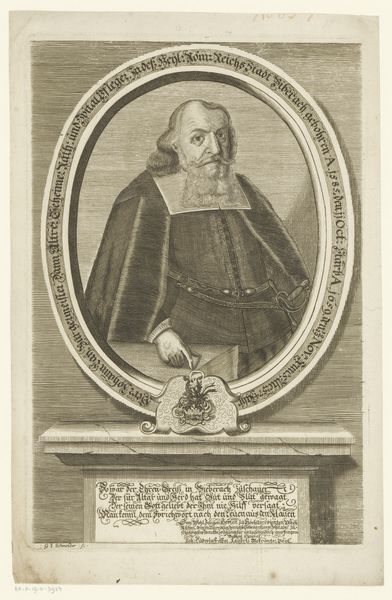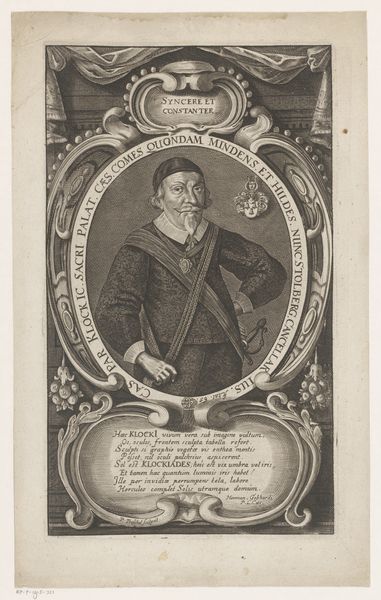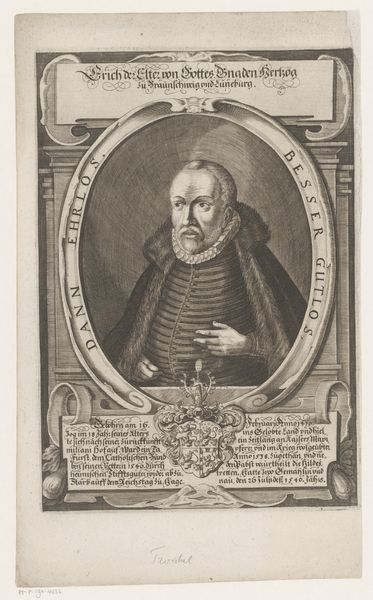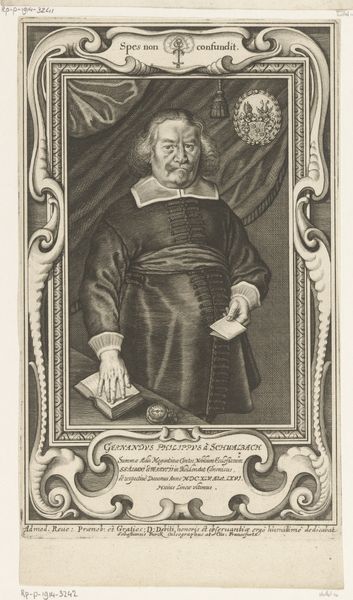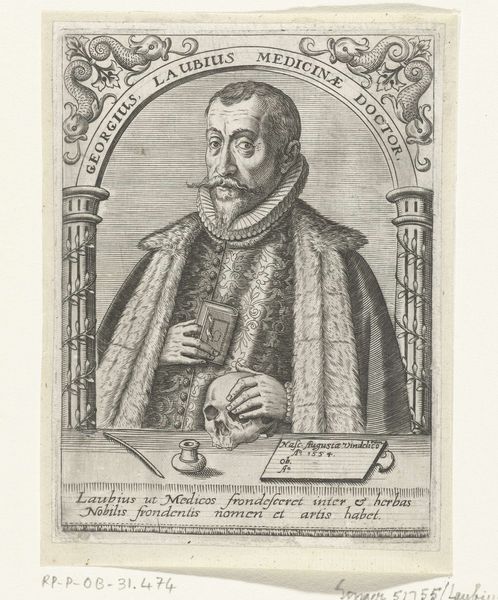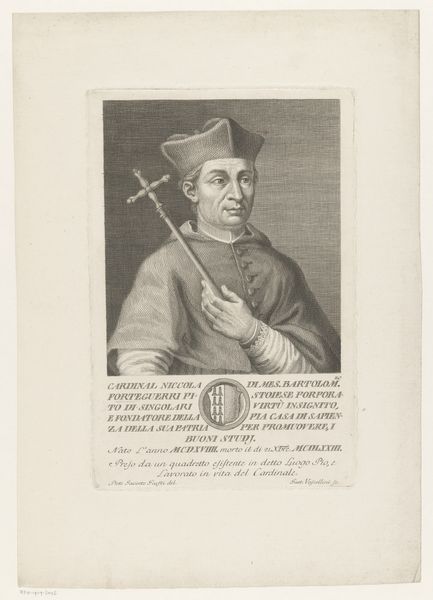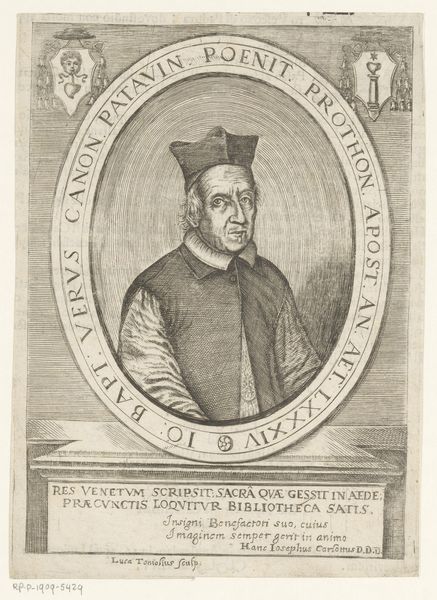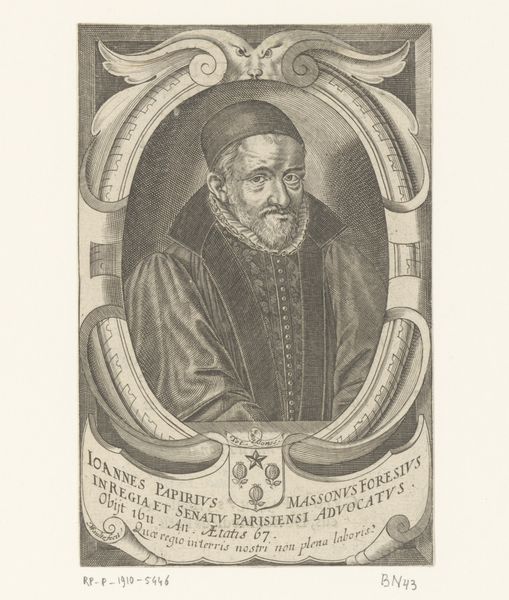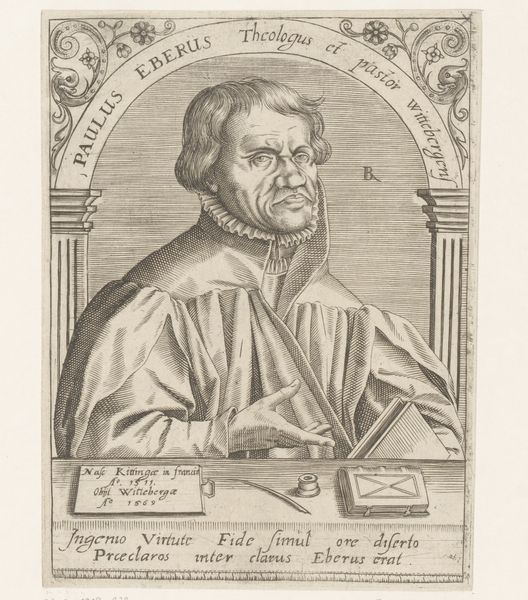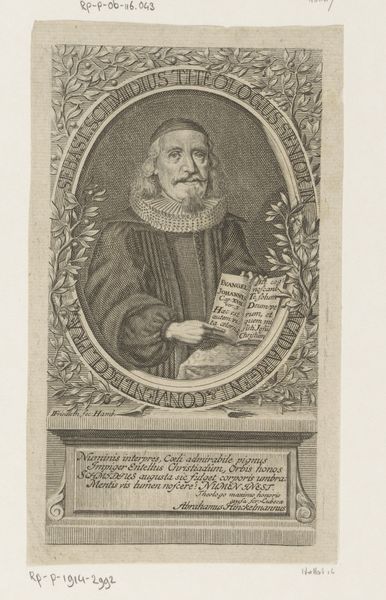
engraving
#
baroque
#
old engraving style
#
caricature
#
portrait drawing
#
history-painting
#
engraving
Dimensions: height 195 mm, width 134 mm
Copyright: Rijks Museum: Open Domain
Editor: This is a portrait of Johann Friedrich Perger, an engraving dating back to somewhere between 1650 and 1672, by Matthias van Sommer. It’s quite detailed, but also feels a little… rigid. The symmetry is striking. What catches your eye about this piece? Curator: I'm drawn to the labor that went into it. Look at the very *doing* of engraving, the meticulous cuts, the control needed to create light and shadow. Notice also the trappings of power. His tools suggest skill in a trade, elevating craftsmanship within this depiction of authority. Consider the social implications of that decision, making visible what might otherwise stay hidden. Editor: So you’re less interested in the symbolism, say the cannon, and more in the *making* of the image and its effect? Curator: Exactly! The cannon is, of course, symbolic of power. But what does its inclusion say about the status of craft and *industry* at the time? What labor made that cannon? Where did its raw materials originate? To me, that is more revealing than its face-value interpretation as merely representing military strength. Consider, too, who commissioned this. What kind of statement were they hoping to make and how were those messages made clear through production choices? Editor: That’s a fascinating point. It completely shifts the way I'm viewing it. I hadn't thought about it as a carefully manufactured object embedded in a social web of labor. Curator: Precisely. By focusing on materials, methods, and cultural forces we can unveil a more complete, complex, and relevant understanding. Editor: Well, thanks, I definitely have a lot more to think about regarding this portrait now. I’m seeing the history, not just in the sitter, but in the choices made during the art’s production.
Comments
No comments
Be the first to comment and join the conversation on the ultimate creative platform.
